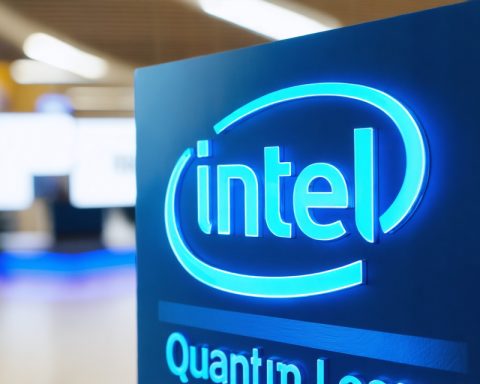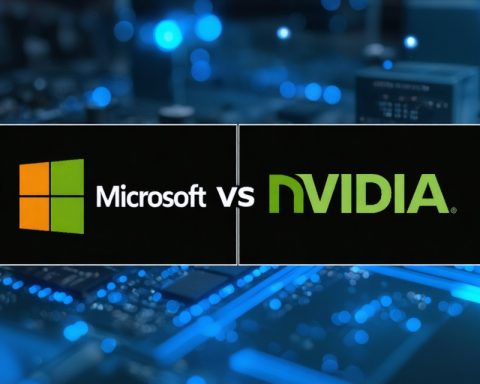- The Bill & Melinda Gates Foundation’s portfolio centers on three key companies: Microsoft, Berkshire Hathaway, and Waste Management.
- Microsoft is a major pillar with 28.5 million shares valued at $11.8 billion, driven by its growth in AI investments and strategic alliances.
- Berkshire Hathaway provides financial strength with over $9.5 billion in Class B shares, enhanced by Warren Buffett’s diversified investment strategy.
- Waste Management offers stability with consistent returns, aligning with the foundation’s focus on sustainable revenue for global impact.
- Together, these companies constitute a significant portion of the foundation’s $44 billion equity investments, supporting its mission for global change.
Beneath the financial might of the Bill & Melinda Gates Foundation lies a strategically structured portfolio, primarily built around three dynamic industry leaders. As the foundation channels its resources into battling global health challenges, three entities—Microsoft, Berkshire Hathaway, and Waste Management—stand tall, bearing the weight of its financial backbone.
Microsoft, the grandfather of innovation, continues to serve as the primary pillar. The foundation clings to 28.5 million shares, valued at a staggering $11.8 billion. The tech giant is riding an impressive wave of growth, driven by an explosive rise in artificial intelligence investment. Microsoft’s strategic alliances, notably with OpenAI, have catapulted its Azure cloud platform into an AI powerhouse. This foresighted alignment poises Microsoft for robust gains as AI technology becomes omnipresent in business infrastructure.
Complementing Microsoft’s tech dominance is Warren Buffett’s investment vehicle, Berkshire Hathaway. Through Buffett’s generous annual donations, the foundation acquires Class B shares, amassing a holding valued at over $9.5 billion. The conglomerate’s diversified equity portfolio and growing operating income have buoyed its value, even as Buffett treads cautiously on stock repurchases—a nod to its high valuation.
Adding a layer of stability is the ever-essential Waste Management, a strategic anchor. Its operations in waste disposal might seem mundane, but it offers steady returns backed by its unparalleled market moat. This holding embodies Gates’ investment ethos—seeking reliable revenue streams to sustain the foundation’s global efforts.
In total, these three titans account for a hefty portion of the foundation’s $44 billion equity investments. Together, they fuel a mission that extends beyond profit, touching lives worldwide. The clear takeaway: strategic investments not only yield financial returns but can serve a much larger purpose, impacting global change for the better.
How the Bill & Melinda Gates Foundation’s Strategic Investments Empower Global Change
Strategic Investments in Technology, Finance, and Sustainability
The Bill & Melinda Gates Foundation’s investment strategy focuses on maximizing financial impact while supporting its global health and sustainability initiatives. By investing heavily in Microsoft, Berkshire Hathaway, and Waste Management, the foundation leverages strategic industrial and technological strengths to drive both financial returns and social impact. Below, we explore the real-world applications and broader implications of this portfolio.
How-To Steps & Life Hacks
1. Diversify with Industry Leaders: Following the foundation’s example, integrate a mix of high-tech, financial, and sustainable investments for balanced growth. Look to leaders in each sector who demonstrate robust financial performance and innovative prowess.
2. Leverage Tech’s Growth: Invest in technology firms that are at the forefront of innovations, such as AI and cloud services, which are projected to dominate the business infrastructure landscape.
3. Sustain Stable Returns: Include companies providing essential services, like Waste Management, which offer predictable revenue streams and protect portfolios during market volatility.
Real-World Use Cases
– Microsoft’s AI Investments: Microsoft’s partnerships in AI, notably with OpenAI, empower entities across sectors to enhance operations through automation and data analytics, increasing productivity and efficiency on a global scale.
– Berkshire Hathaway’s Financial Stability: Through its diversified holdings, Berkshire offers investors a way to capitalize on broad economic growth without being overly exposed to one specific sector.
– Waste Management’s Environmental Impact: Waste Management is pivotal in advancing sustainable practices through recycling and renewable energy projects, aligning profitability with environmental stewardship.
Market Forecasts & Industry Trends
– Technology: The global AI market is set to grow exponentially, with PwC predicting it could contribute $15.7 trillion to the global economy by 2030. This presents substantial opportunities for Microsoft.
– Finance: With interest rates fluctuating, diversified financials like Berkshire Hathaway can continue to provide consistent returns, buffered by its wide array of holdings.
– Sustainability: The push for sustainable practices is driving growth in waste management. MarketsandMarkets forecasts the waste management market to grow from $423.4 billion in 2021 to $542.7 billion by 2026.
Reviews & Comparisons
– Microsoft vs. Competitors: Microsoft’s foray into AI gives it a distinctive edge over other tech giants like Apple and Amazon, both of which are also in the race to enhance their AI capabilities.
– Berkshire Hathaway’s Unique Position: Warren Buffett’s cautious approach contrasts with aggressive acquisition strategies by peers like BlackRock and Vanguard. This prudence appeals to risk-averse investors.
– Industry Standing of Waste Management: Compared to competitors like Republic Services, Waste Management leads in both market share and sustainable practices, making it more attractive to eco-conscious investors.
Controversies & Limitations
– Microsoft: With growing AI capabilities comes scrutiny over ethical considerations, such as data privacy and job displacement, requiring careful corporate governance.
– Berkshire Hathaway: Critics argue Buffett’s aversion to tech stocks until recently may limit potential gains, though his method is designed for long-term value creation.
– Waste Management: While sustainable, the industry is heavily regulated, which can impact operational flexibility and costs.
Features, Specs & Pricing
– Microsoft: Its Azure platform is a leader in cloud solutions, with AI integration options that cater to enterprises of all sizes.
– Berkshire Hathaway Share Classes: Class B shares offer investors a more accessible entry compared to its high-value Class A shares.
– Waste Management’s Services: Offers comprehensive solutions, from recyclable materials processing to landfill gas-to-energy projects.
Security & Sustainability
– Investment Security: Each company offers a blend of growth potential and income stability, ideal for weathering economic shifts.
– Sustainability Efforts: Each company is investing in sustainable practices, with Microsoft committing to carbon negativity by 2030 and Waste Management focusing on renewable resources.
Insights & Predictions
The foundation’s portfolio highlights a trend where enterprises align financial success with social impact, exemplified by thriving in tech innovation, financial prudence, and environmental stewardship. This trifecta promotes long-term viability and ethical investment.
Actionable Recommendations
– For Investors: Consider a similar diversified strategy with a mix of tech, finance, and sustainable stocks to position for growth across all economic conditions.
– For Organizations: Embrace AI and sustainability to remain competitive and appeal to consumers who prioritize corporate responsibility.
For further exploration of these investment giants, visit Microsoft, Berkshire Hathaway, and Waste Management to stay updated on their latest developments.











